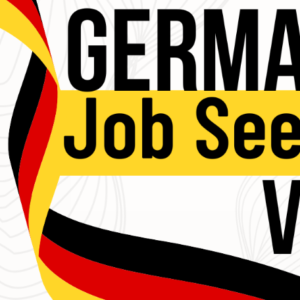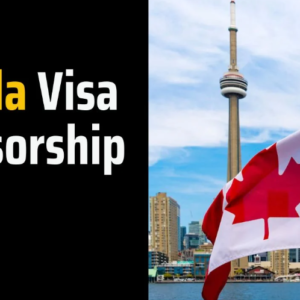Canada’s reputation as a welcoming and diverse country, coupled with its strong economy and high standard of living, has made it an appealing destination for individuals seeking work opportunities abroad. Whether you’re a skilled professional, a recent graduate, or someone looking to gain international experience, Canada offers a variety of work permit options to help you achieve your career goals while experiencing its breathtaking landscapes and vibrant cities. In this article, we’ll provide you with a comprehensive introduction to Canada work permits, covering everything from eligibility criteria to application processes and important considerations.
Why Choose Canada?
Before delving into the specifics of work permits, it’s important to understand why Canada is such an attractive destination for individuals looking to work abroad. Canada boasts a strong and diverse economy, a world-class healthcare system, an excellent education system, and a high quality of life. Additionally, the country’s commitment to multiculturalism and inclusivity makes it a welcoming environment for people from all walks of life. Whether you’re drawn to the bustling city life of Toronto, the natural beauty of Vancouver, or the unique charm of Montreal, Canada has something to offer for everyone.
Understanding Work Permits
A work permit is a legal document issued by the Canadian government that allows foreign nationals to work in Canada for a specific period of time. The type of work permit you’ll need depends on various factors, including the nature of your job, your intended duration of stay, and your qualifications.
Types of Work Permits
- Open Work Permit: This type of permit allows you to work for any Canadian employer and is not job-specific. Open work permits are typically granted to individuals in specific situations, such as international students who have graduated from a Canadian institution or individuals with pending permanent residency applications.
- Employer-Specific Work Permit: If you have a job offer from a Canadian employer, you’ll likely need an employer-specific work permit. Your employer may need to obtain a Labor Market Impact Assessment (LMIA) to demonstrate that hiring a foreign worker will not negatively impact the Canadian job market.
- International Mobility Program (IMP) Work Permit: Under certain international agreements, individuals from participating countries may be eligible for work permits without the need for an LMIA. This includes agreements like the North American Free Trade Agreement (NAFTA) and other bilateral agreements.
- Global Talent Stream: Canada’s Global Talent Stream aims to attract highly skilled foreign workers in specific fields, such as technology and engineering. This stream offers expedited processing times and certain benefits to both workers and employers.
- Seasonal and Agricultural Worker Programs: Canada also offers work permits for individuals seeking seasonal agricultural work. These programs address labor shortages in the agriculture and agri-food sectors.
Eligibility and Application Process
Eligibility criteria vary depending on the type of work permit you’re applying for. However, common factors include a valid job offer, proof of necessary skills and qualifications, and evidence that you intend to leave Canada once your work permit expires. The application process involves submitting the required documents, which may include a job offer letter, your passport, educational credentials, and proof of funds to support yourself during your stay.
Eligibility Criteria
Before embarking on the application process, it’s crucial to confirm that you meet the eligibility criteria for a Canada work permit. The specific requirements can vary depending on your situation, but here are some common factors:
- Job Offer: You typically need a job offer from a Canadian employer to apply for a work permit. In some cases, employer-specific permits require the employer to obtain a Labor Market Impact Assessment (LMIA) to demonstrate the need for a foreign worker.
- Temporary Job: Work permits are issued for temporary employment, so you must demonstrate your intention to leave Canada once your permit expires.
- Admissibility: You must be admissible to Canada, which means you should not have a criminal record or pose a security risk.
- Health Examination: In some cases, you may need to undergo a medical examination to prove that you’re in good health.
- Sufficient Funds: You must show that you have enough funds to support yourself and any accompanying family members during your stay in Canada.
- Compliance with Visa Conditions: If you’ve previously been to Canada on a visa or work permit, you must have complied with the conditions of your previous stay.
- Biometrics and Background Checks: Depending on your nationality and other factors, you might need to provide biometrics (fingerprints and photographs) and undergo background checks.
Application Process
The application process for a Canada work permit involves several steps, and it’s essential to follow them diligently to ensure a smooth process. Here’s a general outline:
- Determine Your Eligibility: Before applying, assess your eligibility based on the type of work permit you’re seeking and your personal circumstances.
- Obtain a Job Offer: Secure a job offer from a Canadian employer. If required, make sure your employer obtains an LMIA.
- Gather Documents: Collect all necessary documents, including a valid passport, job offer letter, proof of qualifications, and proof of funds.
- Complete the Application: You can apply online through the Immigration, Refugees, and Citizenship Canada (IRCC) website. Create an account, complete the forms, and upload the required documents.
- Pay Fees: Pay the application processing fee and any other applicable fees.
- Biometrics and Medical Examination: If required, provide biometrics at a local Application Support Center (ASC) and undergo a medical examination.
- Attend an Interview: In some cases, you may need to attend an interview at your local Canadian consulate or embassy.
- Wait for Processing: The processing time can vary depending on factors like your location and the type of work permit. You can check the current processing times on the IRCC website.
- Decision: Once your application is approved, you will receive a Port of Entry (POE) Letter of Introduction. If your application is denied, you will receive a refusal letter outlining the reasons for the decision.
- Arrival in Canada: When you arrive in Canada, you will be issued a work permit at the port of entry.
Visa Fees
The cost of a Canada work permit can vary depending on the type of permit and your situation. As of July 2023, the processing fee for an open work permit was CAD 100, and for an employer-specific work permit, it was CAD 155. Biometrics fees were CAD 85, and a medical examination would have an additional cost. However, these fees are subject to change, and it’s essential to check the most up-to-date fees on the IRCC website when you apply.
Canada Work Permit Processing Time
Applying for a Canada work permit is an exciting step towards pursuing your career aspirations in a country known for its diversity, economic stability, and exceptional quality of life. However, one crucial aspect that every applicant must consider is the processing time for their work permit application. Understanding the factors that influence processing times and knowing how to navigate them can help you plan your journey more effectively.
Factors Affecting Processing Times
The processing time for a Canada work permit application can vary significantly based on several factors. It’s essential to recognize these elements to set realistic expectations and reduce any potential stress during the waiting period.
- Type of Work Permit: The category of work permit you’re applying for can impact processing times. Open work permits, which allow you to work for any employer, might have different processing times compared to employer-specific work permits that require a Labor Market Impact Assessment (LMIA).
- Location of Application: Where you apply for your work permit matters. Some visa offices might handle applications more efficiently than others due to varying levels of workload and resources.
- Country of Citizenship: Your country of citizenship or residence can influence processing times. Citizens of certain countries might be subject to additional security screenings or background checks, affecting the overall timeline.
- Completeness of Application: Submitting a complete and accurate application, along with all necessary supporting documents, can expedite the processing time. Incomplete applications may face delays due to requests for additional information.
- Current Workload: The processing times can also be influenced by the volume of applications received by Canadian immigration authorities at any given time. High application volumes might lead to longer processing times.
Estimated Processing Times
It’s important to note that processing times are subject to change and can be updated by Canadian immigration authorities. Generally, the processing times can range from a few weeks to several months, depending on the factors mentioned above. As of my last update in July 2023, typical processing times for work permit applications were approximately 2 to 5 months, but these times can vary.
Tips for Managing the Waiting Period
- Plan Ahead: Anticipate the possibility of longer processing times and plan your travel and accommodation arrangements accordingly.
- Submit a Complete Application: Ensure that you provide all necessary documents and information as per the application requirements. This can help prevent unnecessary delays due to missing or incomplete documents.
- Stay Updated: Regularly check the official website of Immigration, Refugees and Citizenship Canada (IRCC) for updates on processing times. They provide estimated processing times for different types of applications and visa offices.
- Consider Express Entry: If you’re eligible for Express Entry, this fast-track immigration system might be an option worth exploring. Express Entry is designed to process certain applications, including some work permit applications, more quickly.
- Remain Patient: Understand that immigration processes can be intricate, and some delays might be beyond your control. Use this time to prepare for your journey, research about life in Canada, and plan for your new adventure.





